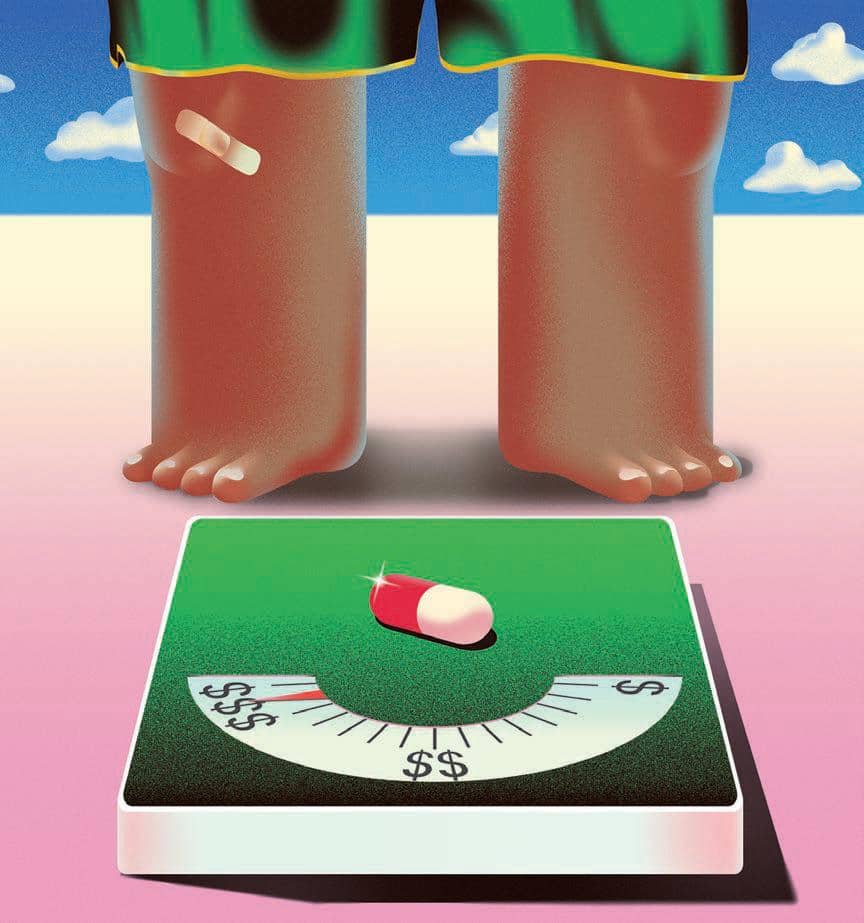
Earlier this year, one of the nation's most influential medical associations released a new set of guidelines for treating childhood obesity. And it nearly broke the internet.
The recommendations, issued by the American Academy of Pediatrics for the first time in 16 years, say that pediatricians should stop taking a "watchful waiting" approach and instead embrace early, aggressive action to treat children and teens with obesity, which AAP defines as having a body mass index, or BMI, at or above the 95th percentile for a child's age and sex. The group recommends "intensive health behavior and lifestyle treatment" for families with children as young as 2 years old, and in addition, weight-loss drugs for children 12 and up, and surgery for children 13 and up with severe obesity.
The reason for the shift in guidelines, experts tell me, is not only that doctors have more experience with weight-loss surgery and drugs than ever before, but also that the field's understanding of obesity has changed: Researchers now know that childhood obesity is a result of genetic, socioeconomic, and environmental factors, not a personal choice. "It's not a situation of gluttony," says Mary Savoye, associate director of pediatric obesity at the Yale School of Medicine. "It's actually a complex disease." And by acting early, researchers say, children can reduce their future risk of high blood pressure, diabetes, and fatty liver disease, which can lead to severe illness and premature death. Lifestyle therapy, says Sandra Hassink, a past president of AAP and an author of the new guidelines, is aimed at "pushing back" against unhealthy environments, with drugs and surgery serving as "adjuncts" to changes in diet and exercise.
This story is from the {{IssueName}} edition of {{MagazineName}}.
Start your 7-day Magzter GOLD free trial to access thousands of curated premium stories, and 9,000+ magazines and newspapers.
Already a subscriber ? Sign In
This story is from the {{IssueName}} edition of {{MagazineName}}.
Start your 7-day Magzter GOLD free trial to access thousands of curated premium stories, and 9,000+ magazines and newspapers.
Already a subscriber? Sign In

HOG WILD
The scandalous reason meat prices have skyrocketed

ALL WALKS
Limiting cars in cities can help disabled people, too.

REMIGRATION
How Trumpism is following the far right in Europe toward mass expulsion of immigrants

SETTLING THE SCORE
A pop psychology book is considered the definitive trauma text. But what if it's leading survivors down the wrong path?

Positive Spin
People with e-bikes drive less, pollute less, parkinglots-and that's only part of why cities and states are embracing them with gusto.

Cradle and All
The devastating cost of Utah's thriving adoption industry

THE BILLIONAIRE WHO NEARLY BROKE NEWPORT
TRUMP MEGADONOR STEPHEN SCHWARZMAN'S EXTREME MANSION MAKEOVER IS DRIVING HIS NEIGHBORS NUTS.

THE SECRET PLAN TO STRIKE DOWN US GUN LAWS
AND THE COP-TURNED-PASTOR AT THE CENTER OF IT ALL

GOOD NIGHT AND GOOD LUCK
Election Day inside a bustling broadcast newsroom that no longer exists

MASTER OF DISASTER
Trump won’t confront the climate crisis. He’ll feast off it.